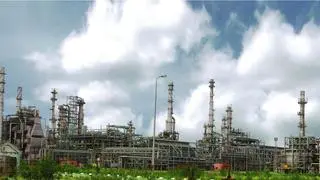The trend of a drop in year-on-year profit growth witnessed in the first three quarters has played out for Hero Honda in the fourth quarter as well.
A 16-per cent fall in profits for the January- March 2011 period saw the stock close 3.6 per cent lower in Wednesday's trade. This fall is despite net sales growing by about 31 per cent year on year in this period, aided by a 22 per cent volume growth.
What has prevented the topline growth from carrying through to the bottomline is the 10.5 per cent fall in operating profits. Raw material costs as a percentage of sales shot up to 73 per cent during the quarter from 68 per cent in the same period last year.
Severe competition from and loss of market share to Bajaj Auto has also prevented the company from making as much price increases as other players. In effect, EBITDA margins came in lower at 15 per cent from about 17 per cent a year ago. Besides, beyond the operating level, higher depreciation costs has played its part in dampening the bottomline growth.
Outlook
Going forward, the outlook continues to be bleak for the company as volume growth, which has been supporting topline growth so far, may come under pressure. With inflation continuing to eat into disposable incomes and interest rates rising, two-wheeler sales might see a moderation.
This could be more pronounced for Hero Honda, as it derives the bulk of its revenues from the rate-sensitive entry/commuter segment. More so, because it has already been under performing in 2010-11, a high-growth period. As against the two-wheeler industry volume growth of about 26 per cent in 2010-11, the company's volumes have grown by only 17 per cent.
Besides, realisations and margins, which have already suffered this year partly due to the company's inability to completely pass on cost increases to customers, could receive further blows.
Another dampener is the issue of higher royalty to Honda as per the new agreement. Although, the management at the time of the Honda stake buy-out allayed fears, royalty, pegged at around Rs 675 crore over the next 3-4 years, would represent a jump of about 59 per cent from the Rs 425 crore paid in 2009-10.
For shareholders, this could be an additional downer as it crops up at a time when earnings would already be facing pressures from issues discussed above. One wonders whether the shareholders could have been spared this additional burden at least, had Honda's stake been bought out at a higher price by the promoters.







Comments
Comments have to be in English, and in full sentences. They cannot be abusive or personal. Please abide by our community guidelines for posting your comments.
We have migrated to a new commenting platform. If you are already a registered user of TheHindu Businessline and logged in, you may continue to engage with our articles. If you do not have an account please register and login to post comments. Users can access their older comments by logging into their accounts on Vuukle.